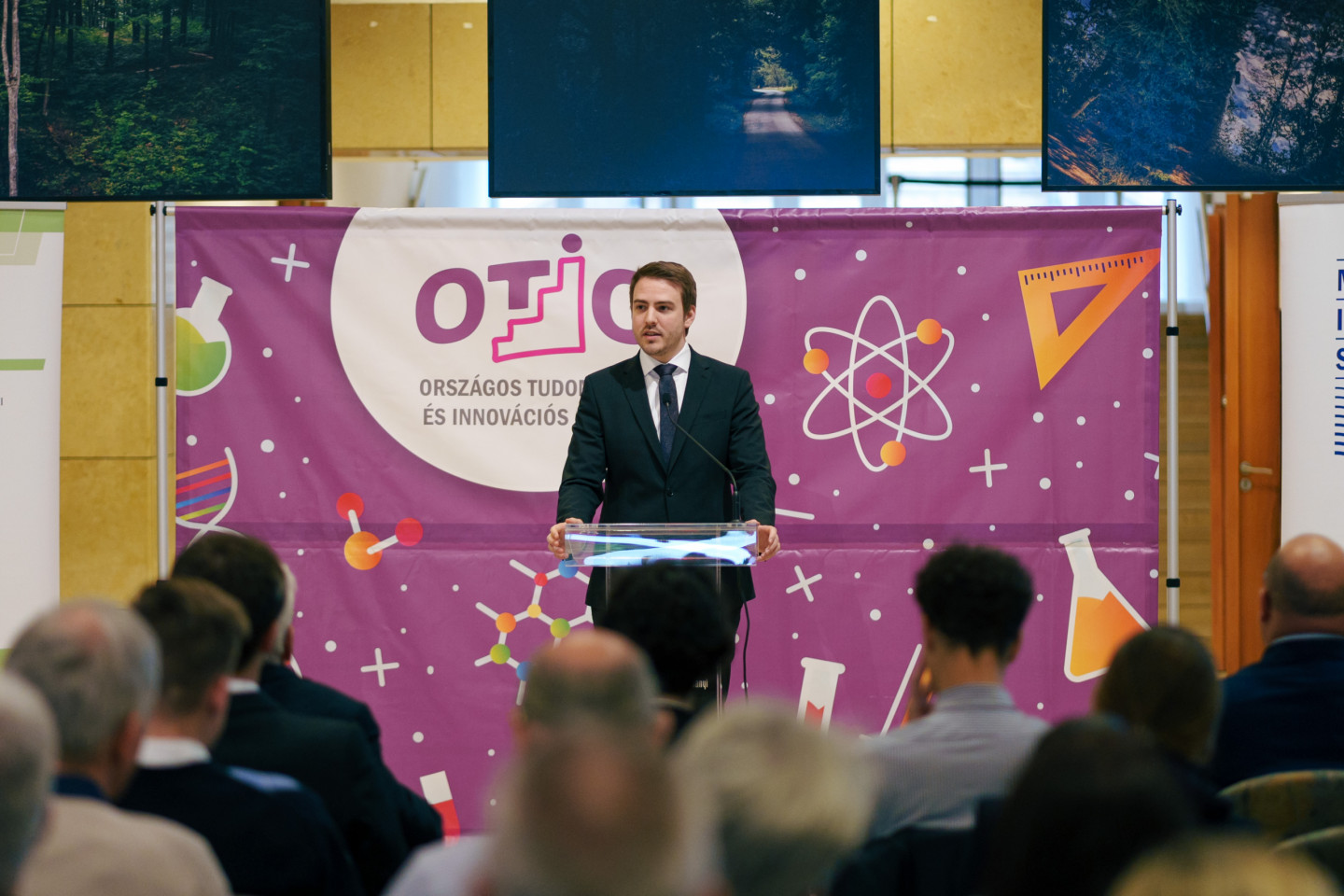The 34th National Science and Innovation Olympiad (OTIO) for young people aged 14-19 has been announced, with a total of more than five million forints in prizes and reimbursements for young people starting an independent project, and special support for the most successful preparatory teachers and secondary schools.
The Hungarian Association for Innovation (MISZ), with the special support of the Ministry of Culture and Innovation (KIM), with the professional cooperation of the State Secretariat for Public Education of the Ministry of the Interior (BM), with the main support of the National Research, Development and Innovation Office (NKFIH), and together with the Hungarian Innovation Agency (NIÜ), announced this year's OTIO call for entries.
László Bódis, Deputy State Secretary for Innovation of the Ministry of Culture and Innovation and CEO of the Hungarian Innovation Agency (NIÜ), emphasized in his speech that there is a need for spaces, programmes and competitions that can arouse young people's interest in natural sciences, research and innovation.
"This is what we are working on in the National Innovation Agency", he said, stressing that this semester there are many programmes in Hungary focusing on innovation. Twelve international events on research and innovation will take place this semester, he added. The first Hungarian Innovation Week was held, with thousands of participants and foreign speakers from more than 50 countries. In November, Hungary will also host the World Science Forum. "We have had a strong half-year, which will be further strengthened by the National Science and Innovation Olympiad," he said.
Bódis said that the Hungarian Innovation Agency has launched several programmes to raise awareness of science careers, including the Selye János Student Lab programme, which last year gave 20,000 secondary school students access to laboratories. László Bódis stressed that young people are encouraged to take advantage of the programmes available in secondary schools and universities, and that higher education leaders should take the opportunity to give OTIO winners additional points for their results in the competition. The deadline for applications is 2 December.
The competition is open to young people aged 14-19 years and is organised by the Hungarian Innovation Association with the special support of the KIM, with the professional assistance of the State Secretariat for Public Education of the Ministry of the Interior, with the main support of the National Research, Development and Innovation Office (NKFIH) and in cooperation with the NIÜ. According to the call for proposals, young people who submit an independent project will receive a total of more than HUF 5 million in prizes and reimbursement of costs, and the most successful preparatory teachers and secondary schools will also receive special support.
Zsolt Bernert, Director General of the Hungarian Museum of Natural History, emphasized in his welcome speech that young researchers should seek their peers, go to museums, visit nature and try to gather inspiration from the environment. János Pakucs, honorary president of the Hungarian Innovation Association and chairman of the organising committee, said that a special study competition was being organised to find young people who were not only smart but also creative. He said that the competition, which has been significantly improved at the suggestion and with the special support of KIM, is expected to attract many more applicants than in previous years. He explained that the deadline for entries is 2 December, with a maximum two-page outline of a scientific, mathematical or environmental idea or problem to be developed or solved. The first round will give the successful applicants until 7 April 2025 to develop their project in detail.
Balázs Péterffy, Vice President of the Klebelsberg Centre, spoke about the importance of secondary school education, stressing that current legislation encourages institutions to treat science as a unit and to favour experiential and experiential learning. A competition like this is important because the judges want to see who can see what others can't," he said, adding that it is an important task of talent management to find and support these students in developing their talents. Gábor Ivánka, President of the Hungarian Association of Young Scientists (MAFITUD), spoke about the success of last year's OTIO, presenting four young people who had previously won Hungarian prizes and had also been able to present their work at international finals.
The top 3 OTIO winners (10 applicants in total) will receive 200-500 thousand HUF, while the 10-15 other top 10 winners will receive 100 thousand HUF and a special prize for the most successful young person from abroad. The top 3 winners will receive extra points in the admission tests at most universities. The 8-10 schools with the best results in the Olympiad will receive a grant of HUF 800,000 to 1 million, while the most successful teachers will receive a prize of HUF 600,000 to 800,000. The top 3 winners will be eligible to participate in the two-round EU Young Scientists Competition, and the best will also be invited to other international competitions and professional trips. The call for entries is available at www.innovacio.hu and www.otio.hu.
Picture's source: Fantom Media





